Interview: The Sword Frontman JD Cronise Talks ‘Apocryphon’ and Gear
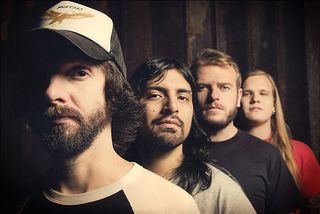
Austin, Texas-based heavy rock quartet The Sword released their fourth studio album, Apocryphon, October 22, their first release on Razor & Tie. It’s a contrasting follow-up to the concept album, Warp Riders, in every sense.
They’re now preparing to hit the road for a US tour with support acts Gypsyhawk and American Sharks.
A couple of days ago, I spoke to vocalist/guitarist JD Cronise to discuss the making of the album, his gear setup, the band's new drummer and several other topics. Enjoy the conversation below, and check out the band’s official website for more info on the album and tour dates.
GUITAR WORLD: Your previous album, Warp Riders, was a big creative undertaking for you, conceptually, musically and in all aspects. Did that help you get back to simpler things for this new album?
Yeah, Warp Riders was a kind of experiment, and it was fun, but it was definitely a challenge. So going into the writing for this one, we kind of wanted to keep it simpler, just write some songs and let them come to us, to see what happens.
I think the album has elements of what you’ve done before, but it has more of a classic heavy metal vibe rather than the sludgy sound of your earlier records. It is kind of Sabbath-y. Is that a fair assessment of Apocryphon?
Yeah, I would say so. Even though it’s funny that I seem to be reading the word "sludge" a lot these days when people are referring to this record, but it definitely doesn’t sound sludgy to me!
Get The Pick Newsletter
All the latest guitar news, interviews, lessons, reviews, deals and more, direct to your inbox!
But in terms of your vocals, you’ve done a lot on this one, probably more than ever before. Is this vocally your best effort so far?
I think so. I’d like to think that every album is the best one we’ve done so far, in terms of everyone’s playing and performance. Personally, I think I stepped it up a little bit on Warp Riders. I actually took some vocal lessons before we recorded that, but yeah, I think I expanded it even more on this new one. Honestly, I get a lot of criticism for my vocals. It’s probably the most criticized aspect of our music, but for me, when I listen to all of our records, I hear what I meant to do. So may be when people criticize it, a lot of the times I think they don’t really understand what we’re going for. But I’m very happy with it.
Well, they can definitely stop criticizing your vocals from now on. Another interesting thing is, you actually stepped outside of Austin and moved to Baltimore to record this one. Was there any particular reason for that, or was it just because the producer is based there?
Yeah, J. Robbins’ studio is there, he lives there, he’s a family man and he’s got a wife and kid. I’m sure he wasn’t really into the idea of coming and living in Austin for a month and being away from his family and away from his home studio where he knows best. It’s always kind of best to let the engineer or producer work in the place that they’re most comfortable. That way they can get the sound that they want, you know.
Did he play an important role in capturing this sound? Do you feel that he brought out the best in you, which you might not have achieved otherwise?
Yeah, definitely. The reason we picked him was, we thought he really had a very good ear for the kind of music that we play, and he could deliver the kind of album we wanted. We knew him mostly from his work with Clutch, although our bass player Bryan is a big fan of the earlier bands he was in, like Burning Airlines. We really felt like he knew how a band like us was supposed to sound. We just wanted a big, thick, classic rock-sounding album. He was really easy to work with, and it was a breeze.
I’m glad you mentioned Clutch, because they also have a songwriting approach that’s similar to what you applied on this album. They have a massive, simple sound. That’s the case with your album as well.
Yeah, I’ve been into Clutch for many, many years and kind of listened to them evolved over the years. What I love about them is, they started with one kind of sound and they’ve totally morphed it into a whole different thing now. But they’ve done it very gradually, and in a logical kind of organic way. We all really admire that. They’re a real band, you know. There are not many bands around these days that are willing to let their sound change and evolve like that. So many people are concerned about, ‘Well, if we make this sound too different from our last album, people won’t like it and it won’t sell well.’ That kind of mindset is very limiting to creativity a lot of times. We strive to definitely be a band like Clutch, and like the classic rock bands of the 70s and 80s that weren’t afraid to let their sound grow.
That brings me right to my next question. This album has a "big" sound, and the riffs are solid and catchy. Do you think your music has changed for the positive enough for you to open yourselves up to new audiences this time?
I think so. We just try to write good songs, and try to write heavy, impactful riffs. People like that, and that’s the kind of thing people search for when they listen to hard rock music. We’re all fans of lots of different genres, but certainly of rock and metal. This album is definitely one of our most accessible albums so far.
I was reading your comment about the album cover in the latest bio, and you said that anybody who buys the CD, LP or cassette would have a great piece of art to go along with the music. The word "cassette" caught my eye. Are you actually releasing the album on cassette?
Oh yes! There’s a program in place now where you can order the album directly from our label and at participating independent record stores, and when you buy the album on LP or CD, you get a free cassette with it.
That’s awesome. Guitar-wise, did you change much from what you used on Warp Riders?
No, we’ve not changed much as far as our equipment and set up goes even since we started. We still pretty much play the same amps. We’ve gotten some new guitars here and there, but not a lot has changed throughout all the records really, as far as that goes. It’s just been different studios, different people recording them, and things like that. Once we find something we like, we tend to stick with it, myself in particular.
You mentioned that you worked with different people to record the albums. Do they offer any input in terms of what you should use as opposed to just the input on the music itself?
Well, there’s a funny story to that. On Warp Riders, the producer, Matt Bayles, said when we began the recording process that he was going to have us try out all these different amps and this and that, but when I brought in my amps and set them up and played through it, that was the last I heard of trying out anything else. If nothing else, there’s one thing that I kind of pride myself for; I know guitar tones. I know what sounds good and I know what I’m going for. I’m an expert knob twiddler. I can get whatever sound I need out of whatever it is. When it comes to my equipment, I’m very in touch with what it sounds like and what it can do, and like I said, once I find myself I like I stick with it. I know what I’m looking for in guitar sound and I know how to get it.
What did it take for you to come to the conclusion that this is the set up you’re going to stick with? Did you just practice a lot with it and try out different settings?
Yeah, I’ve played Orange amps since 1998, and to me they have everything about the tone that suits me very well. Not all Orange amps obviously, but a lot of their models. I have added a 2X12 cabinet to my rig recently. It used to just be a 4X12 cabinet or a 2X12, but now I do a three-quarters stack, which is a stack of a 4X12 and a 2X12. The 2X12 definitely adds a different dimension, and I’m really enjoying that.
Talking of the band’s lineup, this is your new drummer Jimmy Vela’s first studio album. Just for the sake of any fans wondering, I just wanted to ask whether he wrote all of his drum parts.
He did a lot of it. Jimmy is great to work with. If me or Kyle comes in with an idea for a drum part to go along with a guitar part we wrote, Jimmy would play it just like we imagine it and envision it, and if we don’t have anything in mind, he’ll come up with something awesome. He’s very versatile and very easy to work with. I think J Robbins was kind of blown away by his performance in the studio.
Your previous drummer did a great job on the older albums. Was there any expectation from Jimmy to live up to that, or did you just let him ease into it?
He’s very familiar with our previous material and everything like that. I think he probably already had those records long before he joined the band, so he kind of knew what was expected from him as far as that goes, in terms of playing older material. He definitely has some different qualities as a drummer than Trivett, but they both come from the same John Bonham school, if you will, and they have a lot of common ground in their playing as well.
Very soon, you have a tour coming up with Gypsyhawk. I’m digging their new album as well. Are you fans of their music, or did the lineup happen through management, labels or stuff like that?
No, we chose them. I actually suggested them. I don’t own any of their albums yet, but I’m hoping to may be snag them on tour. But I’ve heard their music, I’ve seen videos and stuff online, and they seem like they’ll be a really good fit. We get a lot of offers for the opening slot on our headline tours from a lot more of the extreme metal bands, but we want somebody with a little more of a kind of party vibe, just some good old-fashioned guitar rock that’s going to put smiles on people’s faces instead of inducing mosh-pits.
Andrew Bansal is a writer who has been running his own website, Metal Assault, since early 2010, and has been prolific in covering the hard rock and heavy metal scene by posting interviews, news, reviews and pictures on his website -- with the help of a small group of people. Up till February 2012 he was based in Los Angeles. After that, he had to move to India, but is still carrying on his heavy metal endeavors with the same intensity.

“These guys started the band the same year I was born – they have a whole world of history together”: How Nicole Row went from a wild ride in Panic! at the Disco to laying down the low-end in Incubus – and rerecording their biggest album
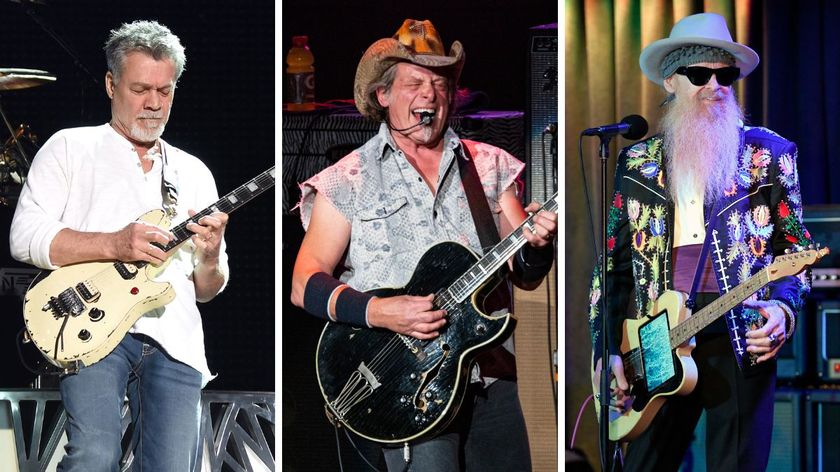
“Who doesn't want to hear the recording of Ted Nugent and Eddie Van Halen jamming?” Ted Nugent's colossal archive includes sessions with EVH, Billy Gibbons and the Mothers of Invention
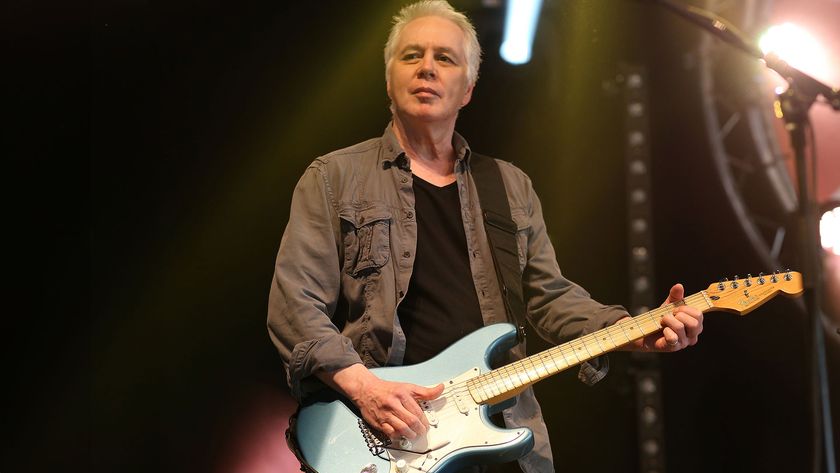
![Adrian Smith [left] and Richie Kotzen pose with an HSS S-style and Telecaster respectively.](https://cdn.mos.cms.futurecdn.net/DqivbKgc2aXLoykDT3h5mN-840-80.jpg)
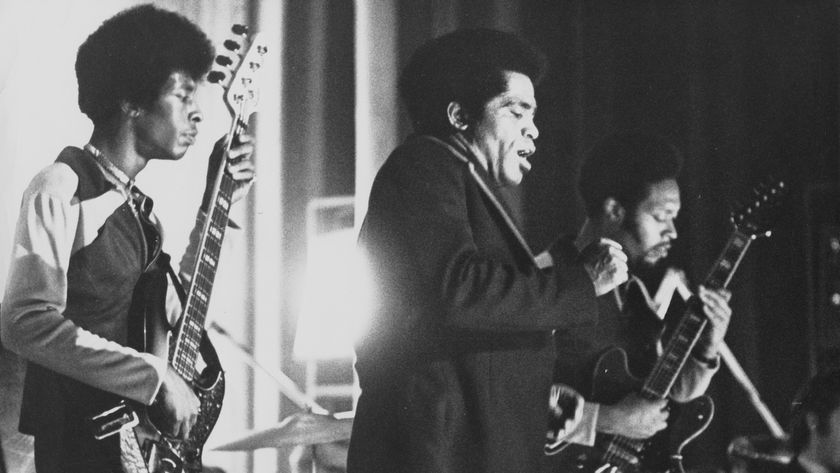
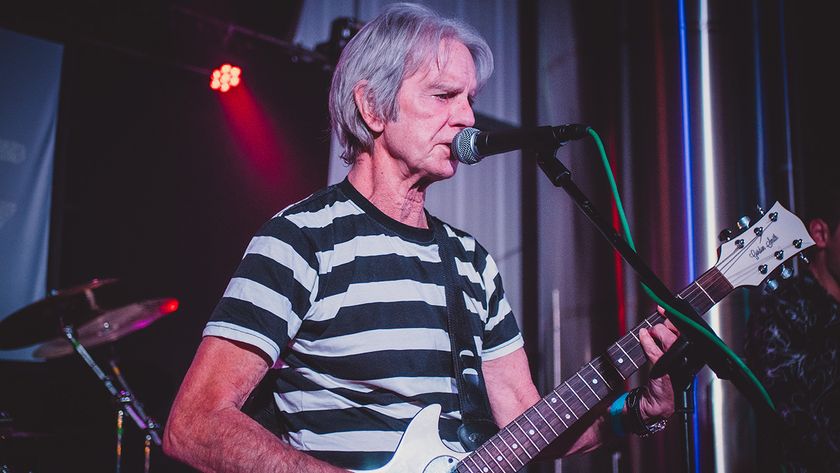
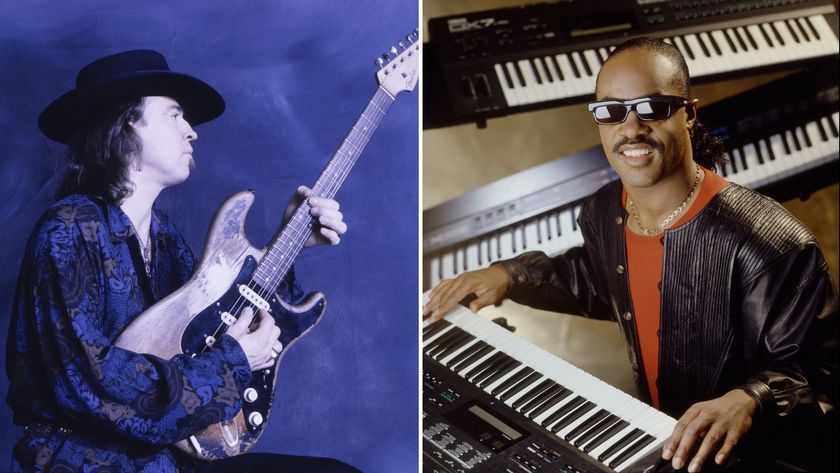
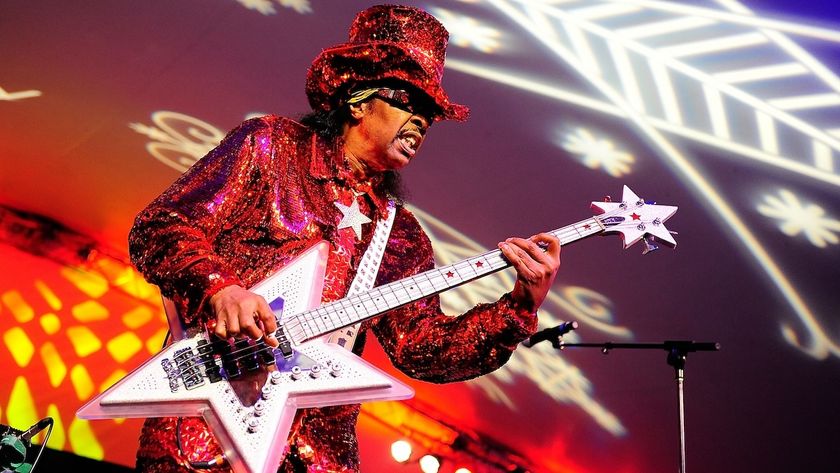
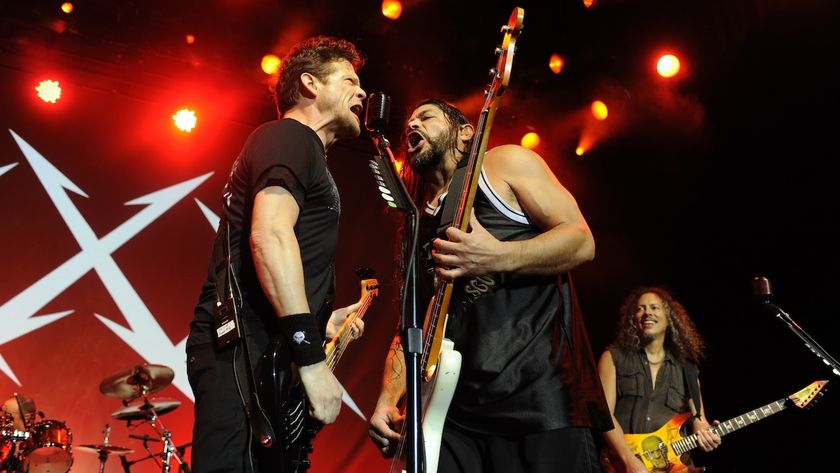
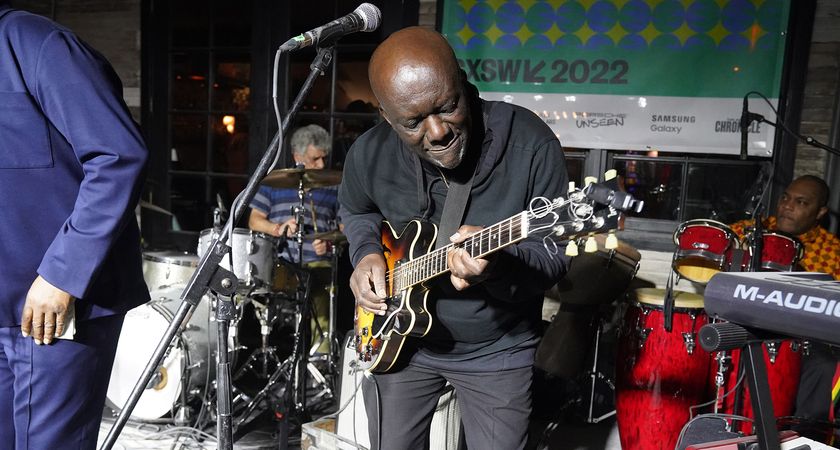
![[L-R] George Harrison, Aashish Khan and John Barham collaborate in the studio](https://cdn.mos.cms.futurecdn.net/VANJajEM56nLiJATg4P5Po-840-80.jpg)
